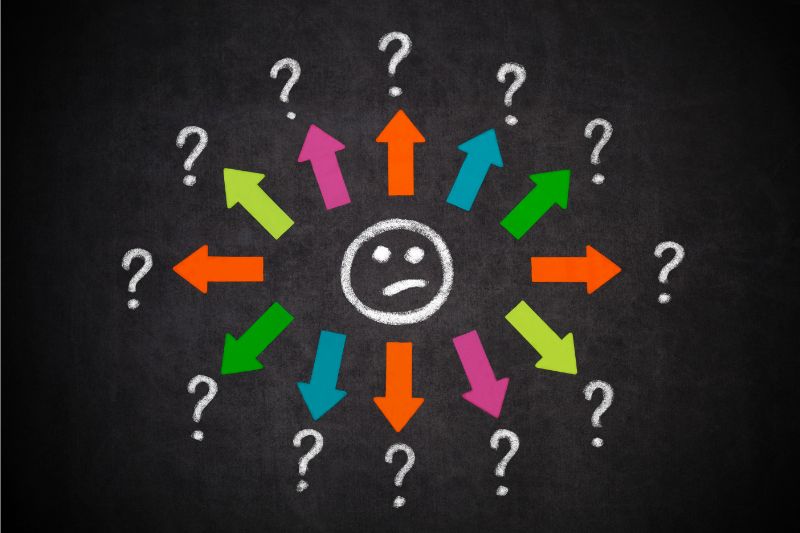Some people want to learn a language but believe they aren’t able to do it. As a strong advocate for language learning, nothing is more painful for me to hear. Anyone can learn a language!
From my point of view, the worst reason for monolingualism is “I am just not good at learning a language.” That’s like saying, “I am just not good at walking or eating. “That’s because language learning is as natural and common as any other human function.
So if you’re reading these words, you’ve already learned at least one language: English. And if it’s your native language, then you most likely learned it very young, starting as young as just a few months old.
Do you really think the 1-year-old version of yourself is smarter than the current version of yourself? If the toddler version of yourself learned a language, the present version of yourself can, too.
Had you grown up in China, Saudi Arabia, or Brazil, do you doubt that you would be fluent in Mandarin, Arabic, or Portuguese?
Except for a few savants, very few factors make any one person more or less predisposed to learning a new language.
The simple truth is that everyone is good at learning a language since nearly every human can speak at least one language! We’ll look at reasons that people may struggle to learn a language, but first, I thought I’d share some of my language-learning journey with you.
What I’ve Learned About Learning Languages

Like many people, my first experience with language learning was forced upon me. It wasn’t a choice I made or something I wanted to do; it was something a school teacher told me I had to do.
Learning a new language was in the same category as memorizing multiplication tables.
The methods my teachers encouraged me to use were about the same. I was led to memorize vocabulary the same way I memorized multiplication tables. It was monotonous, dull, and almost meaningless without context.
My viewpoint and feelings on language learning changed when I had a purpose for learning a language. That purpose was to connect with my culture and help with ensuring that the language of my culture, Circassian, continued to be used and spoken.
Circassian is often considered an “at risk” language (meaning it is at risk of dying out), so it was time to get past the monotonous memorization and figure out a way to learn this language. That way, it doesn’t only survive, but thrive through more generations to come.
Years ago, when I decided I wanted to learn Circassian, I never thought I’d speak it as well as I do today. That doesn’t mean I’m done learning, though. I’d love to speak it better, and as time goes on. I know I will.
But I never dreamed I’d speak it to my wife and parents; I never imagined it would be my children’s first language; I never thought I’d go on to acquire several other languages or become so passionate about languages in general.
At various points, I’ve referred to language learning as a “journey.” That might sound clichéd, but I can’t think of any better analogy.
When I think of what it takes to learn a new language, I imagine a dock jutting into the ocean. But, as the journey continues, that dock becomes a bridge — built by the language learner — word by word, step-by-step.

At a certain point, we look back at this metaphorical bridge and are amazed at how far we’ve come and how much we’ve built. We feel a mixture of pride and joy.
Then we look forward and realize how vast the ocean is and how much farther we must go to cross that ocean and reach the other side.
Sometimes, that can feel overwhelming, even to someone like me. But as I’ve said many times, learning a new language is a process, not an event with a terminal point. Maybe this means that my ocean-crossing analogy is flawed.
But it’s what comes to mind when I’m learning a new language. And as imperfect as it is, it reminds me that my goal should be to enjoy the journey, not just count the days until it is complete.
That’s a bit of my own language-learning journey. Now, let’s look at why anyone can learn a language and the reasons or excuses that put them on a path to failure.
Why Do People Fail at Learning a New Language? (4 Reasons)

To further convince you that anyone can learn a language, I want to debunk some language-learning myths and then look at why people fail. If we’re aware of the most common potholes, we can swerve to avoid them and set ourselves up for success.
Generally speaking, people fail at language learning for one of four reasons:
- They do nothing.
- They have unrealistic expectations.
- They have bad experiences.
- They do the right things in the wrong way.
So, let’s discuss the most common ways language learners run into trouble.
1. People Fail When They Do Nothing
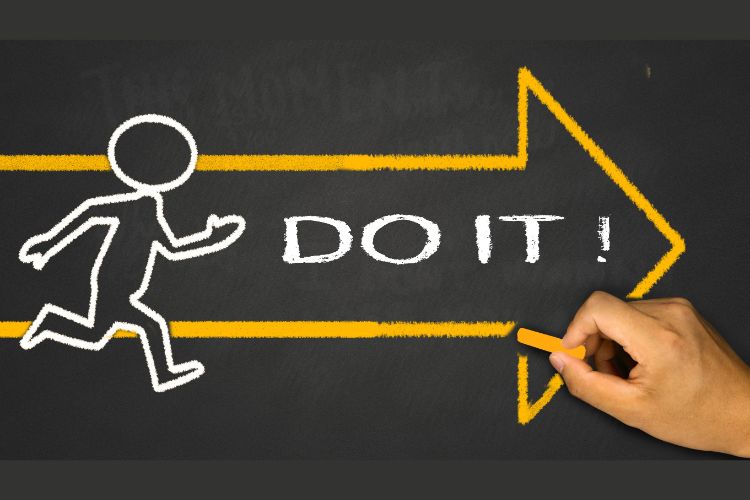
“I want to learn a new language.”
“I want to get in shape.”
“I want to be rich!”
How often have we heard statements like these? How often have we said them ourselves? Taking a hard look at ourselves, we have to ask the question: How often have we followed through?
Most people fail at language learning because they do nothing to achieve their goals. Sure, maybe they download an app or buy a book. Maybe they make a plan to memorize a set of words. But these aren’t meaningful efforts, and many do more to alleviate the guilt of inactivity than they do to advance the goal of learning a new language.
Excuses are made:
- I’ll start learning the language next year.
- When my kid’s soccer season is over, I’ll start.
- I’m just too busy right now.
- I’ll start after the holidays.
I’m not judging people who fail to take meaningful action. There are a number of reasons why people may do nothing: it might not be the right time. They may not be mentally ready. They might have too many other obligations or commitments that take priority. That’s all fine. I’ve been there myself. I think we all have.
The description here isn’t meant to criticize people who do nothing but simply to honestly and objectively lay out one reason why people fail.
2. People Fail When They Have Unrealistic Expectations

Many people decide they aren’t good at learning languages when they try and don’t succeed as quickly as they expect.
Anything worth doing takes time and effort to learn. It typically takes a baby about a year to learn to walk and another six months to learn to run. The more complex the skill, the greater the time and effort required.
This is something that many of us don’t have a memory of learning, so it seems so natural. In reality, we were all tough babies who worked every day to learn how to walk and run.
At the same time, no matter how valuable or intricate the skill is, it’s surprisingly easy to pick up the basics.
While it may take babies a year to learn how to walk, in their earlier efforts, they typically advance from crawling to “toddling” within a matter of weeks. The real-time effort comes from ensuring they’re well-balanced, don’t fall, and ultimately learn how to run.
Likewise, in just a few minutes, most people can learn a few guitar chords (or piano chords or drum beats). They might even develop a comfort level in a few hours. But being able to play a broad range of music, improvise, or write new music can take years.
Language learning is no different. You can pick up some essential phrases of a new language in less than an hour. Still, it will take more effort and commitment if you want to carry on a conversation of any depth.
At this point, most people fall into one of two groups: (1) those who dramatically underestimate the amount of time and effort necessary to learn a new language and (2) those who dramatically overestimate.
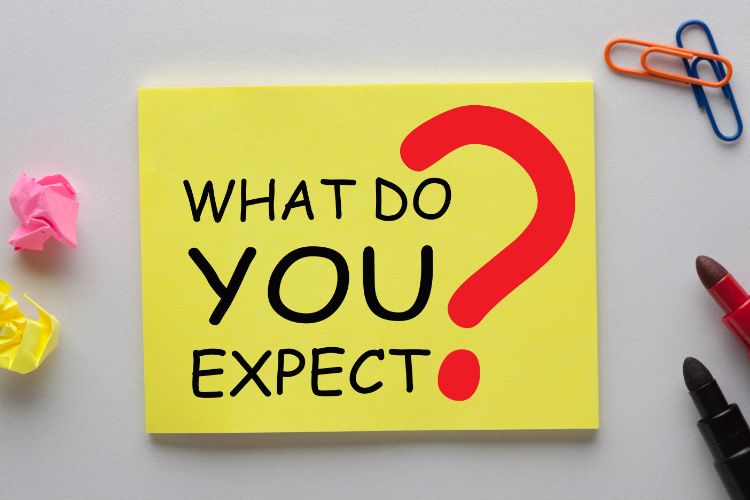
The former often get stuck or discouraged, plateauing early in their language-learning efforts. The latter frequently fail to ever begin or start and take such an over-engineered, onerous approach that they rarely make much progress.
In either case, this leads to a big gap between perception and reality, leading many people to believe they aren’t good at learning languages before they even begin. Even the way we talk about our desire reveals what we expect. Let’s go back to our initial statements of intent:
I want to learn a new language.
I want to get in shape.
I want to be rich!
I try to avoid statements like “I want to X.” They’re on the same level as “I want a cookie.” Their achievement is a function of how easy the terminal task is to accomplish.
Unfortunately, such statements lack action, power, or inspiration. I prefer to say, “I’m learning a new language.” This is action-oriented and open-ended, conveying a strong intent and realistic expectations.
Further, learning a language isn’t a terminal task. There’s no end point where you’re done; this is even the case with your native language. So we’re always learning and growing.
3. People Fail When They’ve Had Bad Experiences

Another force that drives many people to believe they aren’t good at learning languages stems from bad experiences. Unfortunately, there’re many of them. Below are a few of the most common.
They’re Forced to Learn
Many of us studied a foreign language in grammar school, high school, and/or college. We’ve often heard something like, “I studied Spanish for years, but I don’t speak it.” I was forced to study Arabic for 12 years and was far more interested in watching cartoons.
Only later, when I decided I wanted to learn, did I make any real progress.

People forced into an activity rarely do so with much zeal or passion, and it’s nearly impossible to make much progress without these incentivizing factors. This is especially true with language learning.
They have Bad Teachers
I truly believe that the vast majority of teachers have only the best of intentions. But in any large population of professionals, there will be great people, people who aren’t so great, and everything in between.
So from a mathematical perspective, one out of every two people in any given population will be below average.

Therefore, there are bound to be bad teachers, and regardless of the subject, we’ve all had at least a few. While we call them “bad” here, in most cases, they’re not “bad” in the sense of being evil. They’re not even necessarily “bad” in that they’re poor at their jobs.
In most cases, they’re “bad” because their teaching method isn’t aligned with the student’s preferred learning method.
They Use Bad Methods
Other times, language learners are exposed to bad methods. Sometimes these bad methods might be employed by bad teachers, so the language learner gets a “double whammy.”
Other times, the bad method might be used by a language learner trying to learn through self-study.
Here again, the reasons why a method might be “bad” are similar to why a teacher might be “bad.”
For example, one might use dozens of methods and/or activities in a classroom or self-study environment. While I personally believe that some are better (or more time-efficient) than others, there’re very few methods that absolutely won’t work.
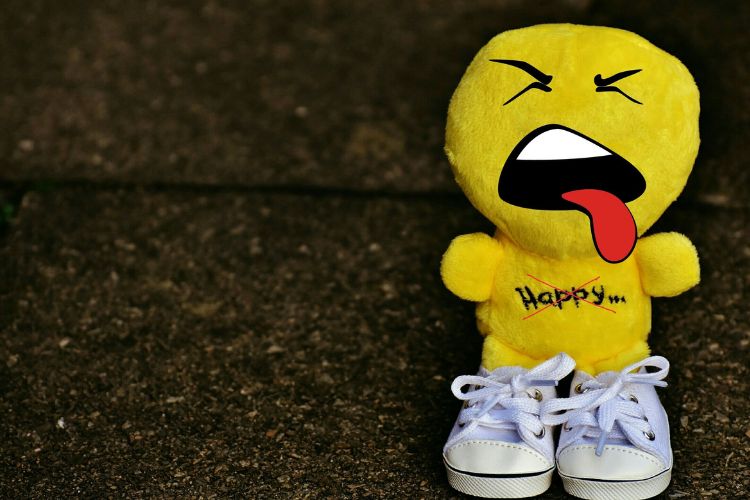
That said, there’re probably many methods that won’t work for you. Most people new to language learning fail to realize how many different methods, approaches, or activities are available.
For example, they’re tempted to believe that there’s one method or one book, or one app that will “get them fluent.”
At the same time, many language learners mistakenly believe that language learning is a task, chore, or job that needs to get done.
They don’t appreciate that language learning can and should be an enjoyable experience. As such, they often fail to realize that some methods, like watching movies or playing video games in your target language, are valid study methods.
It’s the Wrong Time or Place
The final bad experience shared by many people stems from beginning their language learning efforts at the wrong time or place.
All of these bad experiences can overlap, but if you’re fully committed, with the best teachers and methods, it’s still possible to have a bad experience if you start at the wrong time or place.
The reasons why it may be the wrong time are many. Maybe your personal life is a bit complicated at the moment. Perhaps work is mentally taxing, and you can’t find time to devote to your language learning efforts. Or maybe you can find the time, but you just can’t focus.

Alternatively, the wrong place could also throw a wrench into your language-learning plans. Maybe your work or home environment is just not conducive to studying.
Or perhaps you have the time, place, and focus on studying. Still, you can’t find native speakers or materials where you are located.
It boils down to this: many people – perhaps even most – fall victim to the belief that they’re not good at learning languages.
Nothing could be farther from the truth. Anyone can learn a new language – including you.
4. People Fail When They Do the Right Things In the Wrong Way
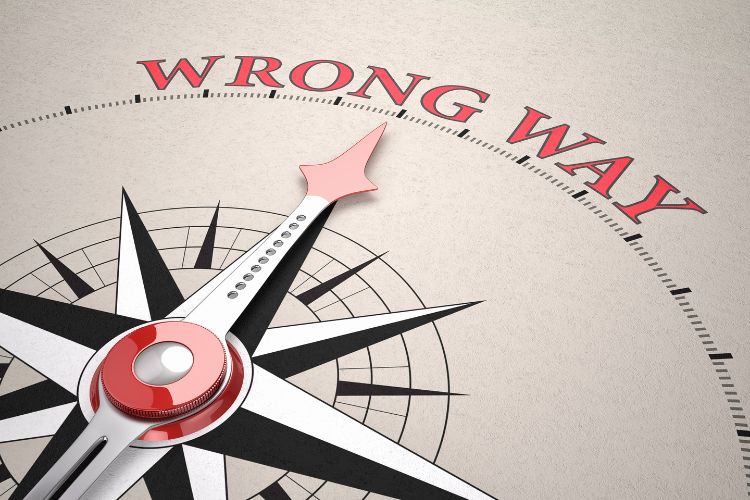
Imagine that you’re told there is a box of gold coins buried 15 feet below the ground. It can be yours if you just dig it up.
So you grab a pair of gloves, work clothes, and some tools and you start digging. These are all the right things to do in this situation.
It’s taking forever to dig this hole and find the treasure. What’s the problem?
Well, you’re using a trowel instead of a shovel. Do they both remove dirt? Yes, but the trowel does so on a much smaller scale.
You’re doing all the right things, but you’re just doing them the wrong way. This will make it incredibly challenging to reach your goal, whether you’re going for the hypothetical goal of gold or the language-learning gold of fluency.
In a language-learning context, imagine you’ve decided that the time is right. You can commit yourself to learning a new language and set up a daily study schedule.
Every day, for 30, 45, or even 60 minutes, you can find a calm, quiet place to study. You’ve cleared one of the biggest hurdles, and you have the personal discipline and ability to study every day. This is the right thing.
Why Might I Be Failing at Learning a New Language?

There’s no simple answer here, but it’s because there’s a mismatch between you, your preferred learning style, and your approach to your studies. So let me give you an example.
Below are a series of things you could reasonably do to advance your language-learning efforts:
- Buy a textbook and go through it cover to cover.
- Study formal grammar and memorize rules.
- Download an app and use it every day.
- Create flashcards (real or virtual) and study them every day.
- Write out words or phrases in a journal every day.
- Watch or listen to audio or video in your target language.
- Engage with native speakers in your target language.
- Read native written materials in your target language.
- Keep a journal in your target language.
- Translate newspaper articles to/from your target language.
While I don’t personally care for some of them, they’re all valid actions that work for certain people.

But the devil’s in the details on a bunch of different levels. For instance:
- Using a textbook daily because you’re a textbook learner: Who wrote the textbook? Is it appropriate for your skill level? Was it designed for self-study? Is the material in it fun, engaging, and/or personally relevant to what you want to learn? Are you forcing yourself to complete chapters without bearing on your personal language-learning goals?
- Engaging with native speakers: Who are the native speakers? Do they realize you’re just learning the language? Do they care? Do they have the time to care? Are you making the same mistakes in pronunciation or grammar, and they’re not correcting you because they want to be polite?
- Using video or audio: Are there subtitles? Are they in the target language or in English? What is the content of those videos or audio? Is that content personally of interest to you? Is the material presented too quickly? Too slowly?
The worst-case scenario is when you have the drive and discipline to commit to your studies, but you force yourself to study something that’s just not working for you personally.
Again, there are no black-and-white “always” or “never” rules here. But failing because you’re doing the right things in the wrong way can be dangerous.
Not only are you losing time, but you run the risk of becoming burned out, cynical, or jaded, and you may lose hope in the dream of learning your new language.
Looking at failure is often painful and uncomfortable, but through the sting of these harsh emotions are also truths that come with the lessons learned in failure.
Here I’ve detailed many of the reasons that people fail at learning a language. Many of these reasons are truths that I’ve found through years of research and study myself.
But here is another truth: more than 3,300,000 people in the world are at the very minimum bilingual. This is almost half of the global population. If that many people can speak more than one language, then why not you?

